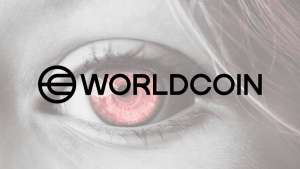
- Vitalik Buterin envisions a future where meme coins go beyond focusing on quick price rallies and into societal impact and long-term value creation.
- He called on the crypto industry to prioritize meme coin projects that either support charities or ‘rob the rich and give to the poor,’ which is the net effect that Axie Infinity achieved.
When he speaks, crypto listens, and this time, he is attacking the vanity of meme coins. In his most recent blog post, Ethereum founder Vitalik Buterin took aim at the ‘get rich quick’ nature of meme coins, calling on the crypto world to evolve towards meme coins that add value to society.
Meme coins were once on the fringe of the crypto industry, but since Dogecoin opened the door in the 2021 bull rally, they have become one of the industry’s pillars. According to CoinGecko, meme coins have a market capitalization of $70.9 billion and, in the past 24 hours, accounted for $7.6 billion in trading volume.
At $29.8 billion, Dogecoin is the market leader, with SHIB and now dogwifhat (WIF) taking the next two spots. This meme coin rise has most benefited Solana, pushing it past Ethereum for on-chain activity, as CNF reported.
But while meme coins have been on a roll in this bull market, investors have previously lost billions of dollars to these projects. The same breakneck volatility that attracts investors also turns against them when the fortunes turn, and the projects start a downtrend.
In his blog post, ‘What else could memecoins be?’ Buterin acknowledged that meme coins have become a critical part of crypto. However, today, they are shrouded in racism and toxicity and “contribute nothing of value in their wake.”
Buterin: Meme Coins Can Be So Much More
Buterin suggests two possible ways meme coins can pivot to create more value for society:
- Through charity coins that contribute to worthy causes.
- Through the Robin Hood approach.
The first simply dwells on ensuring that a portion of the coins is donated to charities working on causes such as climate change, cancer research, ending hunger or catering to war victims. Several attempts have been made in this regard, with Buterin singling out GiveWell Inu and Fable of the Dragon Tyrant. The first is no longer operational despite its noble cause, while the second is funding anti-aging research.
Buterin donated the supply of Dogelon Mars (a meme coin), which the founders bequeathed him, to a charity, leading the project to become centered on charity.
The second way is ‘robbing the rich to give to the poor.’ In more elaborate terms, meme coins can be built around blockchain games that users actually enjoy playing away from the financial aspect. Buterin singled out Axie Infinity as one project that managed to do this and became wildly popular in Southeast Asia.
The Robin Hood part is where Axie Infinity managed to change the lives of thousands of users, most of whom were from poor backgrounds. A lot of this was done at the expense of the more wealthy users, who would invest much more in the game.
Buterin summed up the philosophy as:
This seems like a nice property to have: if you have to be financially brutal on someone, be brutal on those who can handle it, but have a safety net to keep lower-income users protected and even try to make them come out better off than they came in.
Meanwhile, meme coins continue to surge. WIF has gained 113% in the past week to flip PEPE as the third-largest meme coin. One of the latest entrants, cat in a dog world (MEW), has tripled its value since its debut a week ago.





















